
Speakers
 Anne-Marie Nybo Andersen, MD, PhD - Full professor of Epidemiology, Faculty of Health Sciences, University of Copenhagen, Denmark (UCPH) - and her lab, the POPE (Perinatal, Obstetric and Paediatric Epidemiology) group, finds special interests in epidemiologic studies of fetal, childhood and long-term health effects of exposures (in particular gestational duration, social and demographic factors including parental age and ethnicity, infections, health behaviors) during pregnancy and childhood. Data from birth cohorts and national registers are used for life-course epidemiology studies of reproductive, respiratory, cardio-vascular, musculo-skeletal and immunological health conditions.
Anne-Marie Nybo Andersen, MD, PhD - Full professor of Epidemiology, Faculty of Health Sciences, University of Copenhagen, Denmark (UCPH) - and her lab, the POPE (Perinatal, Obstetric and Paediatric Epidemiology) group, finds special interests in epidemiologic studies of fetal, childhood and long-term health effects of exposures (in particular gestational duration, social and demographic factors including parental age and ethnicity, infections, health behaviors) during pregnancy and childhood. Data from birth cohorts and national registers are used for life-course epidemiology studies of reproductive, respiratory, cardio-vascular, musculo-skeletal and immunological health conditions.
She took part in establishing the Danish National Birth Cohort and has since 2017 been the PI for this large-scale cohort. She is now instrumental in building opportunities and infrastructures for scientific collaborations between birth cohort researchers worldwide through the Horizon 2020 LifeCycle and EUCANconnect, and the www.birthcohorts.net, for which she is manager.
 Marian Bakker, PhD, is epidemiologist at the EUROCAT registry of congenital anomalies (University Medical Center Groningen) and director of the Regional Centre for Prenatal Screening in the Northeast Netherlands. She has a special interest in medication use in pregnancy, prenatal detection of congenital anomalies and data quality. In 2021 she was involved in EUROlinkCAT and analysed the data for WP6 ‘Accuracy of congenital anomaly coding in live births in health care databases’.
Marian Bakker, PhD, is epidemiologist at the EUROCAT registry of congenital anomalies (University Medical Center Groningen) and director of the Regional Centre for Prenatal Screening in the Northeast Netherlands. She has a special interest in medication use in pregnancy, prenatal detection of congenital anomalies and data quality. In 2021 she was involved in EUROlinkCAT and analysed the data for WP6 ‘Accuracy of congenital anomaly coding in live births in health care databases’.
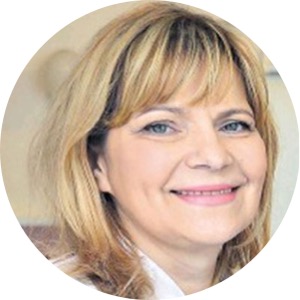 Ingeborg Barisic,, MD, PhD – Full professor of Paediatrics and Medical Genetics, Faculty of Medicine, University of Zagreb, Croatia. She is a leader of the Zagreb Registry of Congenital Anomalies and a founder of the Referral centre for Congenital Anomalies of the Ministry of Health of the Republic of Croatia, Children's Hospital Zagreb, which is a full member of ERN ITHACA. A former president of the EUROCAT association, she has a special interest in epidemiology and the genetic basis of congenital anomalies, intellectual disability and rare genetic diseases. Dr. Barisic is a lecturer at the Medical Faculty, Faculty of Pharmacy and Biochemistry, University of Applied Health Sciences and Education-Rehabilitation Faculty of the University of Zagreb. She has participated in many national and international projects related to congenital anomalies and rare genetic diseases. Member of national and international boards and expert committees such as the Orphanet Board, Board of the Member States of the European Reference Networks, Policy Board of European Joint Programme on Rare Diseases, Committee on Orphan Drugs and Medicinal Products of the European Medicine Agency and Coding Committee of the EUROCAT network.
Ingeborg Barisic,, MD, PhD – Full professor of Paediatrics and Medical Genetics, Faculty of Medicine, University of Zagreb, Croatia. She is a leader of the Zagreb Registry of Congenital Anomalies and a founder of the Referral centre for Congenital Anomalies of the Ministry of Health of the Republic of Croatia, Children's Hospital Zagreb, which is a full member of ERN ITHACA. A former president of the EUROCAT association, she has a special interest in epidemiology and the genetic basis of congenital anomalies, intellectual disability and rare genetic diseases. Dr. Barisic is a lecturer at the Medical Faculty, Faculty of Pharmacy and Biochemistry, University of Applied Health Sciences and Education-Rehabilitation Faculty of the University of Zagreb. She has participated in many national and international projects related to congenital anomalies and rare genetic diseases. Member of national and international boards and expert committees such as the Orphanet Board, Board of the Member States of the European Reference Networks, Policy Board of European Joint Programme on Rare Diseases, Committee on Orphan Drugs and Medicinal Products of the European Medicine Agency and Coding Committee of the EUROCAT network.
 Damien Bonnet is Professor of Pediatrics and Cardiology and leads the Pediatric and Congenital Cardiology department at University of Paris. He coordinates three French national reference centers for rare cardiac diseases, the M3C for complex congenital heart diseases, the Pediatric Pulmotension center for pediatric pulmonary hypertensions, and the Pediatric Cardiogen center for inherited cardiomyopathies and arrhythmias. He is the director of the congenital and pediatric cardiology group at the Imagine research institute in Paris. His main research topics are development and genetics of congenital heart diseases, perinatal management of CHDs and predictors of outcomes. Teaching and having clinics in emerging countries is also one of his main clinical involvements. His group has established many collaborations in a large variety of domains including epidemiology, neurodevelopment, therapeutic trials for rare diseases, nomenclature of congenital heart diseases among others.
Damien Bonnet is Professor of Pediatrics and Cardiology and leads the Pediatric and Congenital Cardiology department at University of Paris. He coordinates three French national reference centers for rare cardiac diseases, the M3C for complex congenital heart diseases, the Pediatric Pulmotension center for pediatric pulmonary hypertensions, and the Pediatric Cardiogen center for inherited cardiomyopathies and arrhythmias. He is the director of the congenital and pediatric cardiology group at the Imagine research institute in Paris. His main research topics are development and genetics of congenital heart diseases, perinatal management of CHDs and predictors of outcomes. Teaching and having clinics in emerging countries is also one of his main clinical involvements. His group has established many collaborations in a large variety of domains including epidemiology, neurodevelopment, therapeutic trials for rare diseases, nomenclature of congenital heart diseases among others.
 Christine Damase-Michel is Associate Professor in Pharmacology in Toulouse School of Medicine and Clinical Pharmacologist in Toulouse University Hospital. She is PharmD and obtained a PhD in experimental Pharmacology. She further specialized in Pathology, Biochemistry, molecular Biology, medical Statistics and Informatics and then began to work in Pharmacoepidemiology. She teaches Pharmacology, is head of the Unit “Medications, Reproduction, Pregnancy and Breastfeeding” in the University Hospital department of Clinical Pharmacology. She manages a research team working on reproductive risks of drugs in the INSERM research Unit CERPOP (SPHERE team). She has created the database EFEMERIS, which currently records data concerning more than 158,000 mothers, pregnancy outcomes and children follow-ups. Her team has also set up POMME, a database of around 18 000 children in utero exposed to medications and followed up during their childhood. She belongs to the coordinating team of the French network REGARDs which includes the main institutions working on medications and pregnancy, to the EUROmediCAT network and is involved in the ConcePTION project.
Christine Damase-Michel is Associate Professor in Pharmacology in Toulouse School of Medicine and Clinical Pharmacologist in Toulouse University Hospital. She is PharmD and obtained a PhD in experimental Pharmacology. She further specialized in Pathology, Biochemistry, molecular Biology, medical Statistics and Informatics and then began to work in Pharmacoepidemiology. She teaches Pharmacology, is head of the Unit “Medications, Reproduction, Pregnancy and Breastfeeding” in the University Hospital department of Clinical Pharmacology. She manages a research team working on reproductive risks of drugs in the INSERM research Unit CERPOP (SPHERE team). She has created the database EFEMERIS, which currently records data concerning more than 158,000 mothers, pregnancy outcomes and children follow-ups. Her team has also set up POMME, a database of around 18 000 children in utero exposed to medications and followed up during their childhood. She belongs to the coordinating team of the French network REGARDs which includes the main institutions working on medications and pregnancy, to the EUROmediCAT network and is involved in the ConcePTION project.
 Mads Damkjær, MD, PhD, assistant professor of paediatrics at University Hospital of Southern Denmark where he also works clinically as a paediatric cardiologist. Mads has a research background in cardiovascular physiology with an emphasis on allometric scaling of arterial pressure and adaptations in the cardiovascular system to extremes of physiology. In recent years his research focus has shifted away from animal physiology towards congenital heart defects and their physiology and management.
Mads Damkjær, MD, PhD, assistant professor of paediatrics at University Hospital of Southern Denmark where he also works clinically as a paediatric cardiologist. Mads has a research background in cardiovascular physiology with an emphasis on allometric scaling of arterial pressure and adaptations in the cardiovascular system to extremes of physiology. In recent years his research focus has shifted away from animal physiology towards congenital heart defects and their physiology and management.
Alongside this he also worked on the Ebola virus outbreak in West Africa and has published papers on aspects of this.
He is a member of the Danish Resuscitation Council on behalf of the Danish Society for Paediatrics as well as a member of the Committee for Paediatric Cardiology in the Danish Society for Paediatrics.
 Dorica Dan has a daughter of 37 years old, suffering from PWS. She is a psychologist and initiated RPWA (Romanian Prader Willi Association) in 2003, established RONARD (Romanian National Alliance for Rare Diseases) in 2007, ARCrare (Romanian Association for Rare Cancers) in 2011, and NoRo Center in 2011 in Zalau.
Dorica Dan has a daughter of 37 years old, suffering from PWS. She is a psychologist and initiated RPWA (Romanian Prader Willi Association) in 2003, established RONARD (Romanian National Alliance for Rare Diseases) in 2007, ARCrare (Romanian Association for Rare Cancers) in 2011, and NoRo Center in 2011 in Zalau.
She is part of the board of EURORDIS- Rare Diseases Europe since 2007 and was a board member of IPWSO – International Prader Willi Syndrome Organization.
Dorica was part of the European Commission Expert Group on Rare Diseases (EUCERD/ CERD), a Work Package Leader of the EUCERD Joint Action for Rare Diseases (EJA), Work Package focusing on Specialized Social Services and Eurordis Europlan advisor. She is a member of the National Council for Rare Diseases, initiated and coordinates NoRo Center – a Center of Expertise for rare diseases, member of RareResourceNet – European Network of Resource Centers for rare diseases and the national network for congenital anomalies with/without intellectual disabilities called RO-NMCA-ID, which is a full member of ERN ITHACA. Since 2018 she is an Ashoka fellow, and she was a member of the Romanian Social and Economic Council until 2020.
 Natalie Divin is a Research Associate at the School of Nursing in Ulster University. She completed her PhD in 2020, using population-based administrative data linkage to examine health outcomes in young people such as anti-asthmatic use. She has authored and co-authored multiple peer-reviewed publications in the fields of psychometrics and help-seeking.
Natalie Divin is a Research Associate at the School of Nursing in Ulster University. She completed her PhD in 2020, using population-based administrative data linkage to examine health outcomes in young people such as anti-asthmatic use. She has authored and co-authored multiple peer-reviewed publications in the fields of psychometrics and help-seeking.
 Helen Dolk is Professor of Epidemiology and Health Services Research at Ulster University. Helen’s research experience is mainly in perinatal epidemiology, pharmacoepidemiology and environmental epidemiology. She was Project Leader of EUROCAT 1999-2014, and subsequently of EUROmediCAT. Since 2015, Helen has been working on congenital anomaly surveillance in Latin America and SubSaharan Africa, in particular via the Global Birth Defects initiative.
Helen Dolk is Professor of Epidemiology and Health Services Research at Ulster University. Helen’s research experience is mainly in perinatal epidemiology, pharmacoepidemiology and environmental epidemiology. She was Project Leader of EUROCAT 1999-2014, and subsequently of EUROmediCAT. Since 2015, Helen has been working on congenital anomaly surveillance in Latin America and SubSaharan Africa, in particular via the Global Birth Defects initiative.
 Ester Garne is a Consultant Paediatrician at Hospital Lillebaelt and associate professor at University of Southern Denmark. Registry leader of the EUROCAT registry for Funen for many years and also working for the Central EUROCAT registry as Chair of the EUROCAT Coding and Classification Committee. Research collaboration with the international networks on cerebral palsy (SCPE and the Australian Cerebral Palsy register). Partner in the EU FP7 project EUROmediCAT 2011-2014. She is a EUROlinkCAT partner and clinical coordinator of the EUROlinkCAT study. Main research interest are congenital anomalies and perinatal epidemiology.
Ester Garne is a Consultant Paediatrician at Hospital Lillebaelt and associate professor at University of Southern Denmark. Registry leader of the EUROCAT registry for Funen for many years and also working for the Central EUROCAT registry as Chair of the EUROCAT Coding and Classification Committee. Research collaboration with the international networks on cerebral palsy (SCPE and the Australian Cerebral Palsy register). Partner in the EU FP7 project EUROmediCAT 2011-2014. She is a EUROlinkCAT partner and clinical coordinator of the EUROlinkCAT study. Main research interest are congenital anomalies and perinatal epidemiology.
 Joanne Given, MBChB, MSc, PhD, is a Research Fellow currently working on the EUROlinkCAT and ConcePTION projects at Ulster University.
Joanne Given, MBChB, MSc, PhD, is a Research Fellow currently working on the EUROlinkCAT and ConcePTION projects at Ulster University.
She is a medically qualified doctor and practiced clinically before undertaking a masters in Health Promotion and Population Health. Her PhD explored the validity and application of self-monitoring of blood glucose in diabetes. Her early postdoctoral work used EUROmediCAT, a population based reproductive pharmacovigilance system to evaluate medication safety in pregnancy.
In EUROlinkCAT she worked with registries to standardise their data and has contributed to the analysis of the data exploring risk factors for length of stay in hospital and prescribing as an indicator of morbidity. In ConcePTION she helped create a catalogue of data sources that can be used for medication utilisation and medication safety studies in pregnancy in Europe and will be the post-doc on a demonstration project to examine the risk of adverse neurodevelopmental outcomes following antidepressant exposure in pregnancy. She is the Northern Ireland Co-investigator in MatCHNet, a network which aims to harness cross-country administrative data to evaluate national policy impacts on maternal, infant and child health, and health inequalities across the 4 United Kingdom nations.
Topics: diabetes in pregnancy, pharmacoepidemiology, congenital anomaly epidemiology, statistical methodology and data linkage.
 Sonia Hernández-Díaz, a physician and an epidemiologist, is the Director of the Pharmacoepidemiology Program and Professor of Epidemiology at the Harvard T.H. Chan School of Public Health. Her main area of research is drug safety evaluation based on observational studies, with a special emphasis in the design of protocols and analysis of data relating to the teratogenicity of drugs during pregnancy. Examples of her work include inquiries of the comparative safety of antiepileptic drugs, antidepressants, antipsychotics, antiretroviral therapy regimes, antidiabetics, opioids, and vaccines in pregnancy. Her recent projects include the emulation of hypothetical target trials to generate evidence on the comparative safety of treatment strategies during pregnancy. She has also been chair of the Drug Safety and Risk Management Advisory Committee of the US Food and Drug Administration, member of the NICHD Pregnancy & Neonatology (PN) Study Section, member of the Teratogenic Information Services (TERIS) Advisory Board, and Past-President of both the International Society for Pharmacoepidemiology and the Society for Perinatal and Pediatric Epidemiology Research.
Sonia Hernández-Díaz, a physician and an epidemiologist, is the Director of the Pharmacoepidemiology Program and Professor of Epidemiology at the Harvard T.H. Chan School of Public Health. Her main area of research is drug safety evaluation based on observational studies, with a special emphasis in the design of protocols and analysis of data relating to the teratogenicity of drugs during pregnancy. Examples of her work include inquiries of the comparative safety of antiepileptic drugs, antidepressants, antipsychotics, antiretroviral therapy regimes, antidiabetics, opioids, and vaccines in pregnancy. Her recent projects include the emulation of hypothetical target trials to generate evidence on the comparative safety of treatment strategies during pregnancy. She has also been chair of the Drug Safety and Risk Management Advisory Committee of the US Food and Drug Administration, member of the NICHD Pregnancy & Neonatology (PN) Study Section, member of the Teratogenic Information Services (TERIS) Advisory Board, and Past-President of both the International Society for Pharmacoepidemiology and the Society for Perinatal and Pediatric Epidemiology Research.
 Kristina Holm, RN, PhD. at Hans Christian Andersen Children’s Hospital, Odense University Hospital and University of Southern Denmark. She combines clinical practice and research, primarily within the field of neonatology. In 2019-2021 Kristina participated in WP8 by analyzing data from focus groups conducted with parents. Main research areas are patient pathways, parent and patient involvement, and telemedicine.
Kristina Holm, RN, PhD. at Hans Christian Andersen Children’s Hospital, Odense University Hospital and University of Southern Denmark. She combines clinical practice and research, primarily within the field of neonatology. In 2019-2021 Kristina participated in WP8 by analyzing data from focus groups conducted with parents. Main research areas are patient pathways, parent and patient involvement, and telemedicine.
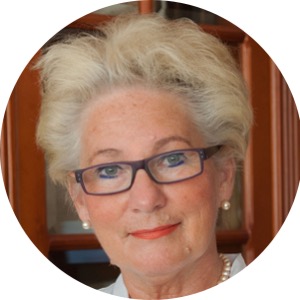 Anna Latos-Bieleńska, M.D., Ph.D., full professor, head of the Chair and Department of Medical Genetics, Poznan University of Medical Sciences, Poland.
Anna Latos-Bieleńska, M.D., Ph.D., full professor, head of the Chair and Department of Medical Genetics, Poznan University of Medical Sciences, Poland.
Creator and leader of the Polish Registry of Congenital Malformations (PRCM).
Specialist in clinical genetics and laboratory medical genetics. National specialist in clinical genetics.
Boehringer Ing. F. and AvH F. grant holder.
Present and past member of national and international boards, editorial boards, expert committees of the Polish Ministry of Health, Polish Ministry of Science and Higher Education, Polish Academy of Sciences, Medical Race of State, Committee for the National Plan for Rare Diseases.
Experienced in multicenter studies within the international consortium (as a leader of the Polish group): EUROCAT, EUROmediCAT, EUROlinkCAT, PROTECT, EURO-MRX, CHERISH.
Topics: epidemiology and molecular basis of congenital malformations, intellectual disability and rare diseases, medical registers, education.
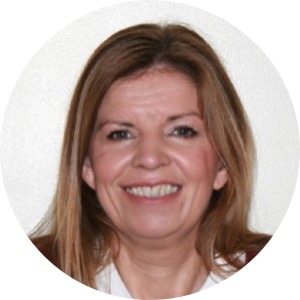 Maria Loane, PhD, leads the Centre for Maternal, Infant and Fetal Research at Ulster University, UK. She is a senior Research Fellow and has worked with the EUROCAT network since 2002. She was partner in the FP7 funded EUROmediCAT project, and the ESRC funded UK “Administrative Data Research Network”. She leads a study on antidepressant use in pregnancy and risk of neurodevelopmental outcomes and congenital anomalies in the ConcePTION project. She is the data coordinator in the EUROlinkCAT project and Chair of the EUROlinkCAT Standardisation Committee. Her research interests are perinatal epidemiology, pharmacoepidemiology and data linkage.
Maria Loane, PhD, leads the Centre for Maternal, Infant and Fetal Research at Ulster University, UK. She is a senior Research Fellow and has worked with the EUROCAT network since 2002. She was partner in the FP7 funded EUROmediCAT project, and the ESRC funded UK “Administrative Data Research Network”. She leads a study on antidepressant use in pregnancy and risk of neurodevelopmental outcomes and congenital anomalies in the ConcePTION project. She is the data coordinator in the EUROlinkCAT project and Chair of the EUROlinkCAT Standardisation Committee. Her research interests are perinatal epidemiology, pharmacoepidemiology and data linkage.
 Dominika Madaj-Solberg, the founder and the president of Spina Foundation in Poland – a non-governmental organization supporting people with spina bifida and hydrocephalus. Over the years, Dominika has been a therapist, she has worked with people threatened with social exclusion both in Polish and Norwegian therapeutic centres. She is a psychologist, a psychotraumatologist who pays particular attention to the factors that support growth after traumatic experiences. For a couple of years, Dominika has been implementing the SOS for Spina Bifida Programme that supports mothers of children with spina bifida during prenatal and perinatal periods.
Dominika Madaj-Solberg, the founder and the president of Spina Foundation in Poland – a non-governmental organization supporting people with spina bifida and hydrocephalus. Over the years, Dominika has been a therapist, she has worked with people threatened with social exclusion both in Polish and Norwegian therapeutic centres. She is a psychologist, a psychotraumatologist who pays particular attention to the factors that support growth after traumatic experiences. For a couple of years, Dominika has been implementing the SOS for Spina Bifida Programme that supports mothers of children with spina bifida during prenatal and perinatal periods.
The wife and the mother of four children, one of whom is with spina bifida.
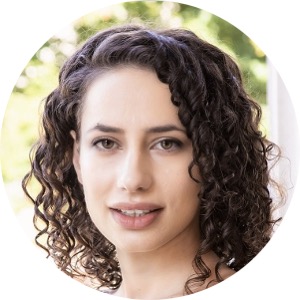 Elena Marcus, Ph.D., is a Researcher based at St George´s, University of London. She most recently led on the EUROlinkCAT parent survey study which explored the information and support needs of parents of children with congenital anomalies across Europe, including experiences during the COVID-19 pandemic. Elena has a background in psychology and mental health research, and has previously worked as a systematic reviewer for the development of the National Institute for Health and Care Excellence (NICE) clinical guidelines. She completed her PhD within the Division of Medicine at University College London, where she developed and pilot-tested a quality of life questionnaire for people living with a rare liver condition, primary sclerosing cholangitis, in the UK. Topics: health psychology, quality of life, questionnaire development, systematic reviewing.
Elena Marcus, Ph.D., is a Researcher based at St George´s, University of London. She most recently led on the EUROlinkCAT parent survey study which explored the information and support needs of parents of children with congenital anomalies across Europe, including experiences during the COVID-19 pandemic. Elena has a background in psychology and mental health research, and has previously worked as a systematic reviewer for the development of the National Institute for Health and Care Excellence (NICE) clinical guidelines. She completed her PhD within the Division of Medicine at University College London, where she developed and pilot-tested a quality of life questionnaire for people living with a rare liver condition, primary sclerosing cholangitis, in the UK. Topics: health psychology, quality of life, questionnaire development, systematic reviewing.
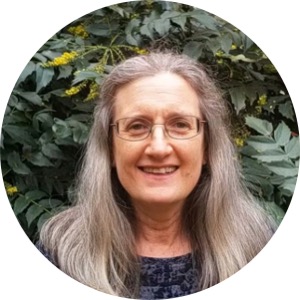 Joan Morris was Professor of Medical Statistics in Queen Mary, University of London (2008- 2018) and Director of the National Down Syndrome Cytogenetic Register (1999-2014). In 2018 she joined the Population Health Research Institute at St George's University of London. Professor Morris is the primary investigator on the EUROlinkCAT study which involves supporting 22 registries in 14 countries in Europe to link their data on births with congenital anomalies to hospital episode statistics, national mortality data, prescription data bases, GP data and education data. The aim is to obtain more information about the lives of children with congenital anomalies up to 10 years of age. Professor Morris is the scientific leader of EUROCAT - the European network of congenital anomaly registries and is responsible for the statistical methodology used by EUROCAT in the surveillance of congenital anomalies. She has particular interest in the prevention of Neural Tube Defects by folic acid fortification and in the epidemiology of Down syndrome. Professor Morris is also a collaborator on the ConcePTION study which aims to improve safety of medications used in pregnancy.
Joan Morris was Professor of Medical Statistics in Queen Mary, University of London (2008- 2018) and Director of the National Down Syndrome Cytogenetic Register (1999-2014). In 2018 she joined the Population Health Research Institute at St George's University of London. Professor Morris is the primary investigator on the EUROlinkCAT study which involves supporting 22 registries in 14 countries in Europe to link their data on births with congenital anomalies to hospital episode statistics, national mortality data, prescription data bases, GP data and education data. The aim is to obtain more information about the lives of children with congenital anomalies up to 10 years of age. Professor Morris is the scientific leader of EUROCAT - the European network of congenital anomaly registries and is responsible for the statistical methodology used by EUROCAT in the surveillance of congenital anomalies. She has particular interest in the prevention of Neural Tube Defects by folic acid fortification and in the epidemiology of Down syndrome. Professor Morris is also a collaborator on the ConcePTION study which aims to improve safety of medications used in pregnancy.
 Amanda J Neville Registry leader for Emilia Romagna Italy (IMER) and Past President EUROCAT the European network of population-based registries for the epidemiological surveillance of congenital anomalies. Amanda has spent over 20 years in congenital anomaly surveillance and research in Europe. Her special interest is in medication in pregnancy and is currently leading IMI Conception WP1 : Moving beyond pregnancy registries to enhance our understanding of disease-related pregnancy outcomes, medication use and safety of use during pregnancy. She is the current President of EUROmediCAT
Amanda J Neville Registry leader for Emilia Romagna Italy (IMER) and Past President EUROCAT the European network of population-based registries for the epidemiological surveillance of congenital anomalies. Amanda has spent over 20 years in congenital anomaly surveillance and research in Europe. Her special interest is in medication in pregnancy and is currently leading IMI Conception WP1 : Moving beyond pregnancy registries to enhance our understanding of disease-related pregnancy outcomes, medication use and safety of use during pregnancy. She is the current President of EUROmediCAT
 Dr Anna Pierini, Female CNR-IFC, is a Biologist, Senior Researcher, at CNR-IFC. She is author and co-author of more than one hundred scientific papers. Her main research interests include reproductive and perinatal epidemiology, particularly on congenital anomalies and rare diseases. In recent years, she has focused on pharmacovigilance and in this frame, she has been the CNR-IFC Scientific Responsible of the EU FP7 Project EUROmediCAT (Safety of Medication use in Pregnancy in Relation to Risk of Congenital Malformations), IMI2 Project ConcePTION (Building an ecosystem for better monitoring and communicating of medication safety in pregnancy and breastfeeding) and EUROmediSAFE Consortium. She is CNR-IFC Scientific Responsible for H2020 EUROlinkCAT (Establishing a linked European Cohort of Children with Congenital Anomalies) Project and in this project she is also co-leader for the WP3-Mortality. She is the Registry Leader of the Tuscany Registry of Congenital Defects for the European Surveillance of Congenital Anomalies Network EUROCAT and for the International Clearinghouse for Birth Defects Surveillance and Research-ICBDSR.
Dr Anna Pierini, Female CNR-IFC, is a Biologist, Senior Researcher, at CNR-IFC. She is author and co-author of more than one hundred scientific papers. Her main research interests include reproductive and perinatal epidemiology, particularly on congenital anomalies and rare diseases. In recent years, she has focused on pharmacovigilance and in this frame, she has been the CNR-IFC Scientific Responsible of the EU FP7 Project EUROmediCAT (Safety of Medication use in Pregnancy in Relation to Risk of Congenital Malformations), IMI2 Project ConcePTION (Building an ecosystem for better monitoring and communicating of medication safety in pregnancy and breastfeeding) and EUROmediSAFE Consortium. She is CNR-IFC Scientific Responsible for H2020 EUROlinkCAT (Establishing a linked European Cohort of Children with Congenital Anomalies) Project and in this project she is also co-leader for the WP3-Mortality. She is the Registry Leader of the Tuscany Registry of Congenital Defects for the European Surveillance of Congenital Anomalies Network EUROCAT and for the International Clearinghouse for Birth Defects Surveillance and Research-ICBDSR.
 Judith Rankin is professor of maternal and child health in the Population Health Sciences Institute within the Faculty of Medical Sciences at Newcastle University. She has a PhD in behavioral teratology from Edinburgh University, UK. Judith has over 25 years’ experience in working in epidemiology and public health and has broad interests in child public health. She leads the NIHR Applied Research Collaboration (ARC) North East and North Cumbria Supporting Children and Families theme and is a member of the ARC National Maternity and Child Health priority theme management group. She has 20 years’ experience specifically working within congenital anomaly epidemiology. She was academic director of the Northern Congenital Abnormality Survey for 10 years and is academic lead for the National Congenital Anomaly and Rare Disease Registration Service (NCARDRS) in England. She is a member of the EUROCAT Management Group and chairs the Scottish Congenital Anomaly and Rare Disease Registration Service External Advisory Group. She is lead for the survival and education workpakages within EUROlinkCAT. A key research interest is long term outcomes for children born with congenital anomalies.
Judith Rankin is professor of maternal and child health in the Population Health Sciences Institute within the Faculty of Medical Sciences at Newcastle University. She has a PhD in behavioral teratology from Edinburgh University, UK. Judith has over 25 years’ experience in working in epidemiology and public health and has broad interests in child public health. She leads the NIHR Applied Research Collaboration (ARC) North East and North Cumbria Supporting Children and Families theme and is a member of the ARC National Maternity and Child Health priority theme management group. She has 20 years’ experience specifically working within congenital anomaly epidemiology. She was academic director of the Northern Congenital Abnormality Survey for 10 years and is academic lead for the National Congenital Anomaly and Rare Disease Registration Service (NCARDRS) in England. She is a member of the EUROCAT Management Group and chairs the Scottish Congenital Anomaly and Rare Disease Registration Service External Advisory Group. She is lead for the survival and education workpakages within EUROlinkCAT. A key research interest is long term outcomes for children born with congenital anomalies.
 Dr. Jennita Reefhuis is Branch Chief for the Birth Defects Monitoring and Research Branch in the Division of Birth Defects and Infant Disorders at the United States Centers for Disease Control and Prevention (CDC) in Atlanta, GA, USA.
Dr. Jennita Reefhuis is Branch Chief for the Birth Defects Monitoring and Research Branch in the Division of Birth Defects and Infant Disorders at the United States Centers for Disease Control and Prevention (CDC) in Atlanta, GA, USA.
She has a PhD in epidemiology from the University of Groningen, the Netherlands where she worked at the EUROCAT Northern Netherlands birth defects registry. She joined the Birth Defects Branch at CDC in 2001 as an Epidemic Intelligence Service (EIS) Officer when she worked on anthrax in New Jersey and assessed the association between cochlear implants and meningitis. Since then, Jennita has worked extensively on the National Birth Defects Prevention Study, a case control study of more than 30 birth defects including heart defects, orofacial clefts and neural tube defects. She served as principal investigator for Georgia and as the lead epidemiologist for the entire study. Birth defects risk factors that are of great interest to her include fertility treatments, antidepressants, antibiotics and occupational and environmental exposures. She has published more than 100 papers, most of them on risk factors for birth defects. As the Branch Chief she provides leadership to birth defects surveillance and research activities as well as work on neonatal abstinence syndrome and long-term outcomes of birth defects, specifically congenital heart defects, spina bifida and muscular dystrophies.
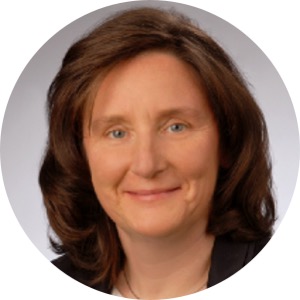 Anke Rissmann, M.D., Ph.D., Specialised in Pediatric Nephrology, Neonatology and Pediatric Rheumatology based at Medical Faculty Otto-von-Guericke-University Magdeburg, Germany
Anke Rissmann, M.D., Ph.D., Specialised in Pediatric Nephrology, Neonatology and Pediatric Rheumatology based at Medical Faculty Otto-von-Guericke-University Magdeburg, Germany
Anke Rissmann has completed her Undergraduate as well as Postgraduate (MD Pediatrics) from the Medical Faculty Otto-von-Guericke-University Magdeburg, Germany.
She has more than 15 years of clinical experience as a Consultant Pediatrician, and serves currently as registry leader of the Malformation Monitoring Centre Saxony-Anhalt, the only population-based birth defect registry in Germany. Since 2018, she is a member of EUROmediCAT Steering Group. EUROmediCAT is a European research consortium dedicated to improving medication safety in pregnancy and a partner in EUROCAT.
Her research interests focus on the epidemiology of congenital malformations, prenatal development and teratogenic risk factors. And as a doctor, she knows that there is more to life than therapies.
 Dr. Paul Romitti is a reproductive molecular epidemiologist and Professor of Epidemiology, Biostatistics, and Toxicology at The University of Iowa. Dr. Romitti has over 30 years of experience in surveillance of congenital and inherited disorders and in conducting molecular epidemiology investigations of these outcomes, particularly, major birth defects. He has directed the Iowa Registry for Congenital and Inherited Disorders (IRCID) since 1999 and the Iowa Center for Birth Defects Research and Prevention since 2002. As IRCID director, Dr. Romitti leads population-based surveillance of major birth defects and maternal and pregnancy outcomes of emerging threats (Zika virus and COVID-19), along with longitudinal surveillance for major birth defects and other congenital and inherited disorders. Dr. Romitti’s current research projects include multisite epidemiologic studies, high-throughput (genome-wide association, whole exome, whole genome) genetic studies, studies of gene-environment interaction effects, and life course studies of individuals with congenital and inherited disorders. Dr. Romitti is Past-President of the National Birth Defects Prevention Network and Past-Chair of the Executive Committee for the International Clearinghouse for Birth Defects Research and Prevention.
Dr. Paul Romitti is a reproductive molecular epidemiologist and Professor of Epidemiology, Biostatistics, and Toxicology at The University of Iowa. Dr. Romitti has over 30 years of experience in surveillance of congenital and inherited disorders and in conducting molecular epidemiology investigations of these outcomes, particularly, major birth defects. He has directed the Iowa Registry for Congenital and Inherited Disorders (IRCID) since 1999 and the Iowa Center for Birth Defects Research and Prevention since 2002. As IRCID director, Dr. Romitti leads population-based surveillance of major birth defects and maternal and pregnancy outcomes of emerging threats (Zika virus and COVID-19), along with longitudinal surveillance for major birth defects and other congenital and inherited disorders. Dr. Romitti’s current research projects include multisite epidemiologic studies, high-throughput (genome-wide association, whole exome, whole genome) genetic studies, studies of gene-environment interaction effects, and life course studies of individuals with congenital and inherited disorders. Dr. Romitti is Past-President of the National Birth Defects Prevention Network and Past-Chair of the Executive Committee for the International Clearinghouse for Birth Defects Research and Prevention.
 Dr. Sylvia Roozen is the Secretary General of the International Federation for Spina Bifida and Hydrocephalus (IF) – head office in Brussels, Belgium. The International Federation represents people with Spina Bifida and Hydrocephalus (SBH) and their families worldwide. Through her networks in countries all over the world IF has unique expert knowledge on SBH.
Dr. Sylvia Roozen is the Secretary General of the International Federation for Spina Bifida and Hydrocephalus (IF) – head office in Brussels, Belgium. The International Federation represents people with Spina Bifida and Hydrocephalus (SBH) and their families worldwide. Through her networks in countries all over the world IF has unique expert knowledge on SBH.
Together with IF’s members, partners, and public-private-civil networks, Sylvia is dedicated to building positive futures for people with SBH, and to reduce the incidence of neural tube defects and Hydrocephalus.
Attention is focused on primary prevention through improving maternal health literacy, raising awareness, political advocacy, research, community building, and human rights education.
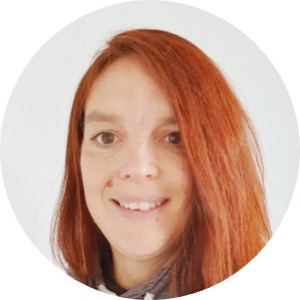 Tania Schink is senior pharmacoepidemiologist at the Leibniz Institute for Prevention Research and Epidemiology – BIPS in Bremen, Germany. She has more than 10 years of experience in pharmacoepidemiology, working on EU funded multi-database studies, Post Authorization Safety Studies, and research projects regarding the use and safety of drugs in vulnerable populations such the elderly and pregnant women.
Tania Schink is senior pharmacoepidemiologist at the Leibniz Institute for Prevention Research and Epidemiology – BIPS in Bremen, Germany. She has more than 10 years of experience in pharmacoepidemiology, working on EU funded multi-database studies, Post Authorization Safety Studies, and research projects regarding the use and safety of drugs in vulnerable populations such the elderly and pregnant women.
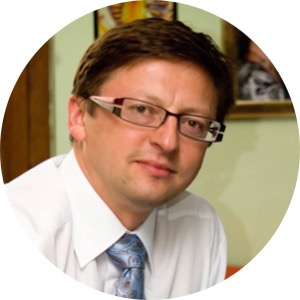 Robert Śmigiel M.D., Ph.D., full professor, Medical University, Wroclaw, Poland. Specialist of pediatrics, metabolic pediatrics, neonatology and clinical genetics. Professor Robert Śmigiel is affiliated with the Medical University of Wroclaw from the beginning of his professional career. He works as medical consultant from clinical genetics and metabolic pediatrics and as physician-geneticist in the outpatients genetic clinic, as simply pediatrician as well as neonatologist in neonatal units. Currently, prof. Robert Śmigiel creates a branch of pediatrics at the Medical University of Wroclaw dedicated to children with rare diseases.
Robert Śmigiel M.D., Ph.D., full professor, Medical University, Wroclaw, Poland. Specialist of pediatrics, metabolic pediatrics, neonatology and clinical genetics. Professor Robert Śmigiel is affiliated with the Medical University of Wroclaw from the beginning of his professional career. He works as medical consultant from clinical genetics and metabolic pediatrics and as physician-geneticist in the outpatients genetic clinic, as simply pediatrician as well as neonatologist in neonatal units. Currently, prof. Robert Śmigiel creates a branch of pediatrics at the Medical University of Wroclaw dedicated to children with rare diseases.
The subject of his research focuses on issues of developmental defects in children. He is the author and co-author of many original papers and case studies as well as author of several medical books as editor and chapters in research textbooks as well as teaching materials in the handbooks for parents of children with developmental disorders. He is working as a volunteer with associations and foundations of parents of children and adults with intellectual disabilities, developmental disorders, genetic and metabolic diseases. Prof. Śmigiel is the founder of the Association for Children with Rare Genetic Diseases and Their Families "Together" and Diagnostic and Therapeutic Centre of rare Diseases in Wroclaw.
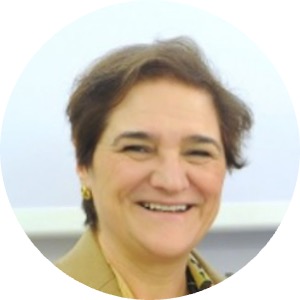 Domenica Taruscio, MD, is the Director of the National Center for Rare Diseases at the Italian National Institute of Health (Istituto Superiore di Sanità, Rome, Italy).
Dr Taruscio is an active contributor to the development of the European scientific and institutional framework on rare diseases and orphan medicinal products.
Domenica Taruscio, MD, is the Director of the National Center for Rare Diseases at the Italian National Institute of Health (Istituto Superiore di Sanità, Rome, Italy).
Dr Taruscio is an active contributor to the development of the European scientific and institutional framework on rare diseases and orphan medicinal products.
Her studies have been directed on rare diseases: from prevention through to diagnosis and care of patients, training of health operators, information to citizens and empowerent of patients and improvement of their quality of life. Her activity pivots on the cross-talk between science and society.
She coordinated or participated to several projects funded by the European Commission. She is member of national, european and international committees, including the International Rare Diseases Research Consortium (IRDiRC; she is co-founder of the Undiagnosed Diseases Network International (http://www.udninternational.org). She represents Italy at the European Commission in the Board of Member States for the European Reference Networks.
She is the President of ICORD (http://icord.es) an International Society whose mission is to improve the welfare of patients with rare diseases and their families world-wide through better knowledge, research, care, information, education and awareness.
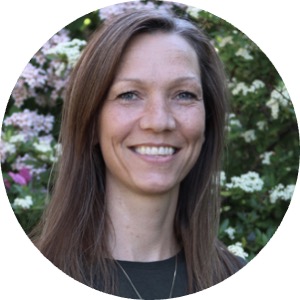 Stine Kjaer Urhoj, MSc, PhD, is a researcher at the Pediatric department, Hospital Lillebaelt and the Section of Epidemiology, University of Copenhagen (UCPH), Denmark. Stine has a background in Public Health Science and a PhD degree in Epidemiology. Her main focus is reproductive and perinatal epidemiology. Her PhD explored the association between paternal age and offspring viability and health. Her postdoctoral work was partly based on the EUROlinkCAT project and partly based on Nordic register-based research aiming at combining and analyzing Nordic register data on health and social factors over the life course (WELLIFE project). She is currently working on the SCOPE project, exploring COVID-19-related risks to pregnant women and their offspring and the EUROlinkCAT project where she is responsible for the linkage and standardization of the Danish data and for the analysis of length of stay in hospital as well as risk of specific diseases in children with congenital anomalies.
Stine Kjaer Urhoj, MSc, PhD, is a researcher at the Pediatric department, Hospital Lillebaelt and the Section of Epidemiology, University of Copenhagen (UCPH), Denmark. Stine has a background in Public Health Science and a PhD degree in Epidemiology. Her main focus is reproductive and perinatal epidemiology. Her PhD explored the association between paternal age and offspring viability and health. Her postdoctoral work was partly based on the EUROlinkCAT project and partly based on Nordic register-based research aiming at combining and analyzing Nordic register data on health and social factors over the life course (WELLIFE project). She is currently working on the SCOPE project, exploring COVID-19-related risks to pregnant women and their offspring and the EUROlinkCAT project where she is responsible for the linkage and standardization of the Danish data and for the analysis of length of stay in hospital as well as risk of specific diseases in children with congenital anomalies.
 Hermien De Walle, PhD, is program director at the EUROCAT registry of congenital anomalies (University Medical Center Groningen). She is a very experienced epidemiologist and supervisor of the EUROCAT database which contains information on more than 19.000 children. EUROCAT Northern Netherlands is well known for its detailed and precise information on children and fetuses with birth defects, risk factors in pregnancy like smoking, alcohol, high BMI and individual information on prenatal tests and diagnosis. The registry is highly skilled in coding congenital anomalies.
Hermien De Walle, PhD, is program director at the EUROCAT registry of congenital anomalies (University Medical Center Groningen). She is a very experienced epidemiologist and supervisor of the EUROCAT database which contains information on more than 19.000 children. EUROCAT Northern Netherlands is well known for its detailed and precise information on children and fetuses with birth defects, risk factors in pregnancy like smoking, alcohol, high BMI and individual information on prenatal tests and diagnosis. The registry is highly skilled in coding congenital anomalies.
Her PhD was titled “Awareness and use of folic acid in the Netherlands: from science to practice”(2001). She was, amongst others, member of the Executive Committee of the International Clearinghouse for Birth Defects Monitoring Systems, the Dutch Health Council, the Project Management Committee of EUROCAT International and chair of the international EUROCAT Working Group on Folic Acid (Ulster, UK). At present she is a member of the Steering Committee EUROlinkCAT.
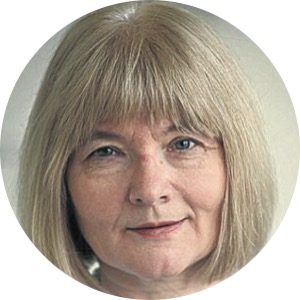 Jolanta Wierzba, M.D., Ph.D., full professor, Medical University of Gdańsk, Poland; Department of Pediatrics, Hematology and Oncology
Jolanta Wierzba, M.D., Ph.D., full professor, Medical University of Gdańsk, Poland; Department of Pediatrics, Hematology and Oncology
Professor, pediatrician, clinical geneticist, specialist in metabolic pediatrics. Head of the Infantile Pathology Department at the Department of Paediatrics, Hematology, Oncology, consultant of the Genetic Department of the University Clinical Center in Gdańsk, Professor at the Department of General Nursing at the Faculty of Health Sciences of the Medical University of Gdańsk. Co-founder and coordinator of the Center for Rare Diseases in University Clinical Center of Gdańsk (since 2015). Permanent cooperation with non-governmental organizations related to rare diseases, medical consultant for Cornelia de Lange Association world, Williams Syndrome Association- Poland, Down Syndrome organisations in Pomeranian District. Vice-president of the Polish Society of Human Genetics, member of the of the Polish Registry of Congenital Malformations, provincial consultant of metabolic pediatrics. Author and co-author of over 300 scientific papers mainly in the field of clinical genetics.
 This project has received funding from the European Union’s Horizon 2020 research and innovation programme under grant agreement No. 733001
This project has received funding from the European Union’s Horizon 2020 research and innovation programme under grant agreement No. 733001The views presented here are those of the authors only, and the European Commission is not responsible for any use that may be made of the information presented here.
Projekt EUROlinkCAT otrzymał finansowanie z Unii Europejskiej "Horyzont 2020", Program badań i innowacji, umowa nr 733001.
Przedstawione tutaj poglądy są wyłącznie poglądami autorów, a Komisja Europejska nie ponosi odpowiedzialności za jakiekolwiek wykorzystanie przedstawionych tutaj informacji.

